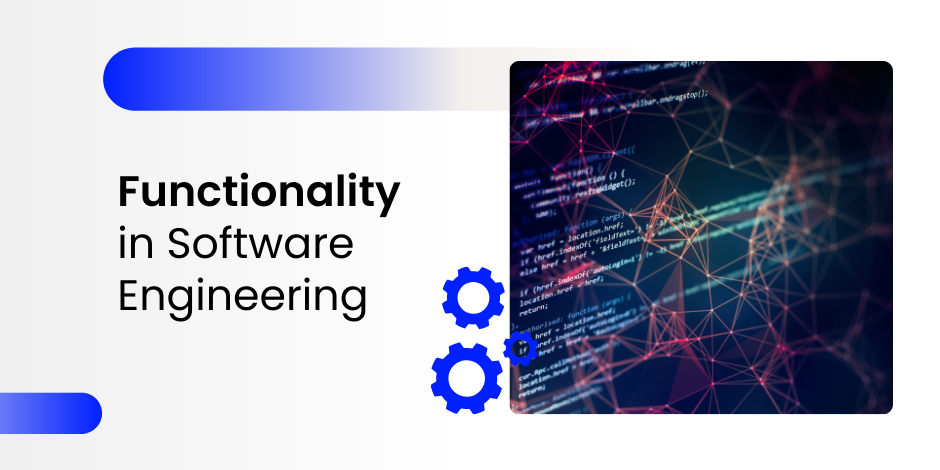The Importance of Functionality in Software Engineering

Stay Informed With Our Weekly Newsletter
Receive crucial updates on the ever-evolving landscape of technology and innovation.
If you are interested in software engineering you’ll soon learn that functionality is the backbone of creating amazing software applications.
In fact, it’s not just important; it’s absolutely vital in the process of developing robust and user-friendly software solutions.
Let’s explore how functionality can make all the difference in the world of software engineering.
Understanding the concept of functionality in software engineering

Functionality in software engineering refers to the ability of a software application to perform specific tasks or functions.
It encompasses the features and capabilities that enable users to achieve their desired objectives efficiently and effectively.
Software engineers must have a deep understanding of the user requirements to determine the necessary functionality that the software should possess.
Defining functionality in software engineering involves identifying the specific tasks or operations the software needs to perform.
This includes core functions and ancillary features that enhance the user experience.
The main goal of functionality in software engineering is to provide users with a seamless and intuitive software interface that allows them to accomplish their tasks easily.
The role of functionality in software development is paramount. It sets the basis for the entire software engineering process.
By establishing clear and comprehensive functionality requirements, software engineers can effectively plan and design the software application.
Functionality is a guidepost, ensuring the development team stays focused on creating a reliable and functional software product.
Usability is critical when it comes to functionality in software engineering. Usability refers to how easily users can navigate and interact with the software interface.
A well-designed software application should have a user-friendly interface that allows users to quickly learn and understand how to use the different functions and features.
Another aspect of functionality is performance. Performance refers to how efficiently the software application can execute its tasks.
This includes response time, processing speed, and resource utilization. A high-performing software application ensures users can complete their tasks without experiencing delays or performance issues.
Reliability is also an essential aspect of functionality. A reliable software application consistently performs its intended functions without errors or failures.
Users rely on software to perform critical tasks, and any glitches or malfunctions can have serious consequences.
Therefore, software engineers must thoroughly test and debug their applications to ensure they are reliable and stable.
Scalability is another consideration when it comes to functionality. Scalability refers to the ability of a software application to handle increasing workloads and accommodate a growing number of users.
As businesses and user bases expand, software applications need to be able to scale up to meet the demand.
This requires careful planning and design to ensure the software can handle increased data processing and user interactions without sacrificing performance or reliability.
Furthermore, security is a crucial aspect of software functionality. In today’s digital landscape, where cyber threats are prevalent, software applications must be secure to protect user data and prevent unauthorized access.
Software engineers must implement robust security measures, such as encryption and authentication protocols, to keep user information safe and confidential.
Lastly, accessibility is an essential consideration in software functionality. Accessibility refers to the ability of individuals with disabilities to access and use software applications.
Software engineers must design and develop inclusive applications that people with different abilities can use. This may involve implementing screen readers, keyboard shortcuts, and adjustable font sizes.
The correlation between functionality and user experience

Functionality and user experience go hand in hand. The functionality of a software application directly impacts user satisfaction and engagement.
When users can easily navigate the software and accomplish their tasks efficiently, their overall experience improves.
How functionality impacts user satisfaction can be seen in the software’s ease of use and intuitive design.
Functionality in software engineering includes straightforward navigation, clear instructions, and logical workflows.
These elements contribute to an improved user experience, resulting in higher satisfaction.
Furthermore, functionality influences user engagement with the software. Users are more likely to be engaged and actively use software applications that provide the necessary functionality to meet their needs.
Users will likely seek alternative solutions if a software application lacks vital functionality.
The impact of functionality on software quality
Functionality is a critical component of software quality.
The degree to which a software application meets its intended purpose and adheres to its functionality requirements directly affects its overall quality.
Software reliability is a crucial aspect of functionality in software engineering.
Functionality measures software reliability, ensuring the software performs as expected and delivers the intended outcomes.
A reliable software application consistently operates without errors or unexpected behavior.
To achieve this level of reliability, software engineers must thoroughly test and validate the software’s functionality.
Additionally, the relationship between functionality and software maintainability is essential.
Software with well-defined and structured functionality is easier to maintain and enhance over time.
Software engineers can easily modify or add new features without compromising the existing functionality, resulting in a more maintainable software solution.
The role of functionality in software testing
Functionality plays a critical role in software testing.
Functionality testing is a systematic approach to evaluating whether a software application meets its functional requirements.
Software engineers can identify and fix potential bugs by conducting rigorous functionality testing.
Functionality testing encompasses techniques such as unit, integration, and system testing.
These tests aim to verify that each functionality component of the software works as intended and integrates smoothly with other members.
The importance of functionality testing in bug detection is paramount.
Engineers can uncover deficiencies, inconsistencies, or errors by systematically testing the software’s functionality.
This allows them to address these issues before the software reaches the hands of the end-users, ensuring a high-quality and reliable software product.
Functionality in Agile software development

Incorporating functionality in agile methodologies is essential for successful software development.
Agile software development is collaborative and iterative, focusing on incrementally delivering functional software.
Functionality serves as a building block in every iteration, allowing software engineers to refine and enhance the software continuously.
The benefits of prioritizing functionality in agile development are numerous.
By prioritizing essential functionality in each iteration, software engineers can quickly deliver value to the end-users.
This iterative approach allows for continuous feedback, making it easier to address any changes or new requirements that may arise during the development process.
Conclusion
Functionality in software engineering is fundamental, impacting vital aspects of the software development process.
Software engineers need to understand and define the functionality requirements to create robust and user-friendly software applications.
By prioritizing functionality, software engineers can ensure user satisfaction, software quality, and successful software development.
Ready to launch your software engineering career?
The Institute of Data’s Software Engineering program offers a comprehensive curriculum, which can be completed full- or part-time to suit your time commitments.
We’ll prepare you for this ever-evolving tech arena with a supportive environment and industry-led tools and techniques.
Ready to learn more about our programs? Contact one of our local teams for a free career consultation today.




